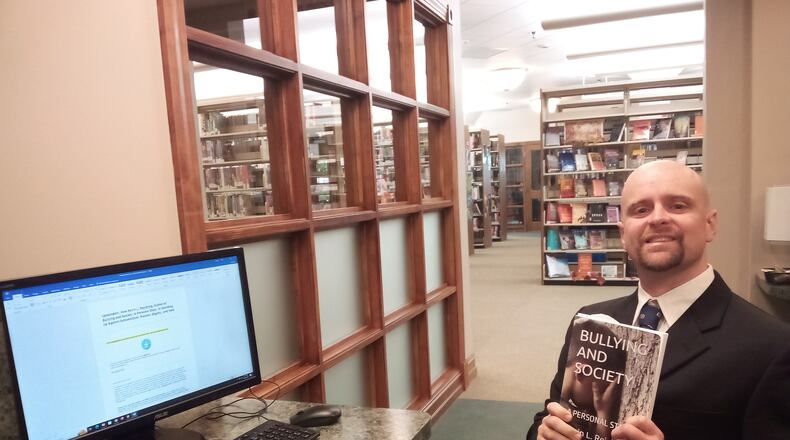“The first middle school I attended was where I experienced the worst bullying physically,” Reichling said. “Two of my bullies even tried to drown me in a public pool.”
Reichling said he had issues with the same group of bullies as far back as third grade. Though he didn’t have relationships with any of them, they chose him as their target and continued abusing him for years.
“I think they did it to amuse their friends” Reichling said.
Reichling said he reported the bullying both to his teachers and his parents, but the attacks continued to get worse. He was given a whistle so he could alert teachers when the attacks happened.
“Overall, going to the teachers was largely unproductive,” Reichling said. “They tried to treat it as conflict and wanted both sides to sit down and work it out. That doesn’t work with bullies.”
The bullying continued throughout most of his middle school years. When Reichling was in the 7th grade, his family moved to a nearby area that had wealthier families and less violence. But Reichling discovered a different type of bullying there.
“They were less physical and more emotional when it came to bullying,” Reichling said. “There were a lot of cliques and passive aggressive behavior.”
During the next few years, Reichling said he was unable to develop any type of social life and since the girls also teased him, he didn’t date. He said he believed he was targeted because he was small and thin.
“I started a body building program to work on my strength,” Reichling said. “By the time I was a junior in high school, I had put on some muscle weight and the bullying stopped.”
Today at age 40, Reichling looks back at that time as not only transformative but as an important learning experience. He has written and published a book about his experiences – “Bullying and Society: A Personal Story.”
“I didn’t trust anyone at school,” Reichling said. “I ended up leaving high school early so I could put it behind me.”
Reichling details his experiences in his book and explains how it continued to hinder his social life even through is 20′s and 30′s. Eventually he went to college and got his bachelor’s degree in wildlife management in 2010. And though he has been working in his field as a conservation technician with Five Rivers Metroparks since 2017, he continues to struggle with things like moving up in his job.
“I never went back to any of the towns where I was raised,” Reichling said. “And because of what happened to me, I’m a much angrier person and irritable. I lack people skills which keeps me from getting promoted.”
But the idea of sharing his story in the form of a book came to him as far back as 2012, when bullying had become a rather hot topic. By 2013, he had his first rough draft after spending significant time researching bullying and the science behind it.
“Most people think that bullies lack self-esteem,” Reichling said. “But the books I read renounced that as a myth. In fact, the issue with bullies is that they have large egos, and their self-esteem is too high.”
Reichling’s childhood bullies were almost always stronger and bigger than he was, and they had an extreme need to dominate others.
“If they could make their friends laugh, they could maintain their social status,” Reichling said. “Their popularity ranges from average to above average.”
Reichling wrote about his bullies and how both his parents and teachers mishandled the situations by handing down ineffective punishments and trying to divert Reichling’s attention elsewhere. His parents encouraged him to join a church group to give him a break from school. It was during one school visit that Reichling said he overheard the principal tell his mother that the bullies looked for the weakest and smallest kids to pick on.
“Hearing that I decided to start body building,” Reichling said.
But though the bullying eventually ceased, the years Reichling endured the abuse changed him and shaped his personality. He wrote the book to help spread the message that most anti bullying programs don’t work because it’s usually a small group of aggressive students that instigate bullying.
“With the book I’m hoping to make people aware of the long-term effects of chronic bullying,” Reichling said. “One thing about bullying – it’s always in front of an audience and rarely will anyone step up to side with the victim. You stop seeing people as individuals. They are part of a giant organism that is out to get you.”
About the Author






